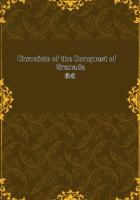Immediately below these three institutions stand the Ministries, ten in number. They are the central points in which converge the various kinds of territorial administration, and from which radiates the Imperial will all over the Empire.
For the purpose of territorial administration Russia proper--that is to say, European Russia, exclusive of Poland, the Baltic Provinces, Finland and the Caucasus--is divided into forty-nine provinces or "Governments" (gubernii), and each Government is subdivided into Districts (uyezdi). The average area of a province is about the size of Portugal, but some are as small as Belgium, whilst one at least is twenty-five times as big. The population, however, does not correspond to the amount of territory. In the largest province, that of Archangel, there are only about 350,000
inhabitants, whilst in two of the smaller ones there are over three millions. The districts likewise vary greatly in size. Some are smaller than Oxfordshire or Buckingham, and others are bigger than the whole of the United Kingdom.
Over each province is placed a Governor, who is assisted in his duties by a Vice-Governor and a small council. According to the legislation of Catherine II., which still appears in the Code and has only been partially repealed, the Governor is termed "the steward of the province," and is entrusted with so many and such delicate duties, that in order to obtain qualified men for the post it would be necessary to realise the great Empress's design of creating, by education, "a new race of people." Down to the time of the Crimean War the Governors understood the term "stewards" in a very literal sense, and ruled in a most arbitrary, high-handed style, often exercising an important influence on the civil and criminal tribunals. These extensive and vaguely defined powers have now been very much curtailed, partly by positive legislation, and partly by increased publicity and improved means of communication. All judicial matters have been placed theoretically beyond the Governor's control, and many of his former functions are now fulfilled by the Zemstvo--the new organ of local self-
government. Besides this, all ordinary current affairs are regulated by an already big and ever-growing body of instructions, in the form of Imperial orders and ministerial circulars, and as soon as anything not provided for by the instructions happens to occur, the minister is consulted through the post-office or by telegraph.
Even within the sphere of their lawful authority the Governors have now a certain respect for public opinion and occasionally a very wholesome dread of casual newspaper correspondents. Thus the men who were formerly described by the satirists as "little satraps"
have sunk to the level of subordinate officials. I can confidently say that many (I believe the majority) of them are honest, upright men, who are perhaps not endowed with any unusual administrative capacities, but who perform their duties faithfully according to their lights. If any representatives of the old "satraps" still exist, they must be sought for in the outlying Asiatic provinces.
Independent of the Governor, who is the local representative of the Ministry of the Interior, are a number of resident officials, who represent the other ministries, and each of them has a bureau, with the requisite number of assistants, secretaries, and scribes.
To keep this vast and complex bureaucratic machine in motion it is necessary to have a large and well-drilled army of officials.
These are drawn chiefly from the ranks of the Noblesse and the clergy, and form a peculiar social class called Tchinovniks, or men with Tchins. As the Tchin plays an important part in Russia, not only in the official world, but also to some extent in social life, it may be well to explain its significance.
All offices, civil and military, are, according to a scheme invented by Peter the Great, arranged in fourteen classes or ranks, and to each class or rank a particular name is attached. As promotion is supposed to be given according to personal merit, a man who enters the public service for the first time must, whatever be his social position, begin in the lower ranks, and work his way upwards. Educational certificates may exempt him from the necessity of passing through the lowest classes, and the Imperial will may disregard the restrictions laid down by law; but as general rule a man must begin at or near the bottom of the official ladder, and he must remain on each step a certain specified time.
The step on which he is for the moment standing, or, in other words, the official rank or tchin which he possesses determines what offices he is competent to hold. Thus rank or tchin is a necessary condition for receiving an appointment, but it does not designate any actual office, and the names of the different ranks are extremely apt to mislead a foreigner.
We must always bear this in mind when we meet with those imposing titles which Russian tourists sometimes put on their visiting cards, such as "Conseiller de Cour," "Conseiller d'Etat,"
"Conseiller prive de S. M. l'Empereur de toutes les Russies." It would be uncharitable to suppose that these titles are used with the intention of misleading, but that they do sometimes mislead there cannot be the least doubt. I shall never forget the look of intense disgust which I once saw on the face of an American who had invited to dinner a "Conseiller de Cour," on the assumption that he would have a Court dignitary as his guest, and who casually discovered that the personage in question was simply an insignificant official in one of the public offices. No doubt other people have bad similar experiences. The unwary foreigner who has heard that there is in Russia a very important institution called the Conseil d'Etat," naturally supposes that a " Conseiller d'Etat" is a member of that venerable body; and if he meets "Son Excellence le Conseiller prive," he is pretty sure to assume--














